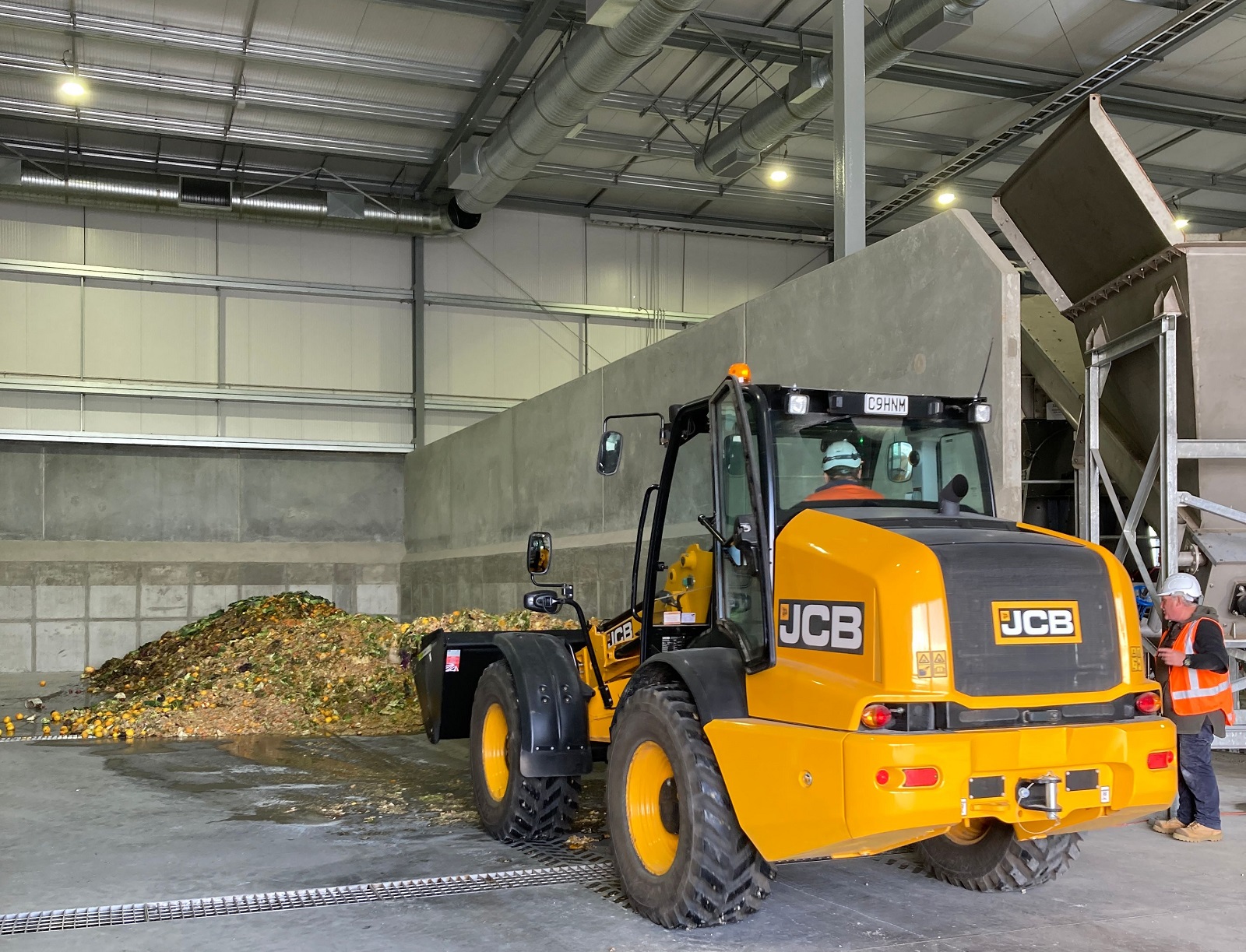Your apple cores and stale bread are a valuable resource, and taking climate action can now be as easy as putting these rukenga kai (food scraps) into a separate bin. Auckland Council’s new food scraps collection service is turning waste into renewable energy and liquid fertiliser.
Your rukenga kai (food scraps) will be collected from your kerbside and taken to the Ecogas processing facility in the centre of the North Island. This facility, the first of its kind in Aotearoa, is where Ecogas will transform your food scraps into liquid fertiliser and biogas, which in turn will help to grow more food on farms and in glasshouses.
“Diverting food scraps from landfill will reduce greenhouse gas emissions and put previously wasted nutrients back into soil,” says Elise O’Brien, senior organic waste specialist and project manager at Auckland Council.
The council expects to collect nearly 40,000 tonnes of food scraps in the first year – equal to taking 10,000 medium-sized cars off the road. That’s because when food breaks down in landfill, it produces methane. “One tonne of methane released into the atmosphere creates the same amount of global warming as 25 tonnes of carbon dioxide,” Elise explains.
Considering that Auckland currently sends 100,000 tonnes of food waste to landfill every year, the rukenga kai (food scraps) collection service will have a huge impact if we all play our part. It’s a chance for everyone to dispose of their food waste responsibly and help reduce both waste to landfill and emissions.
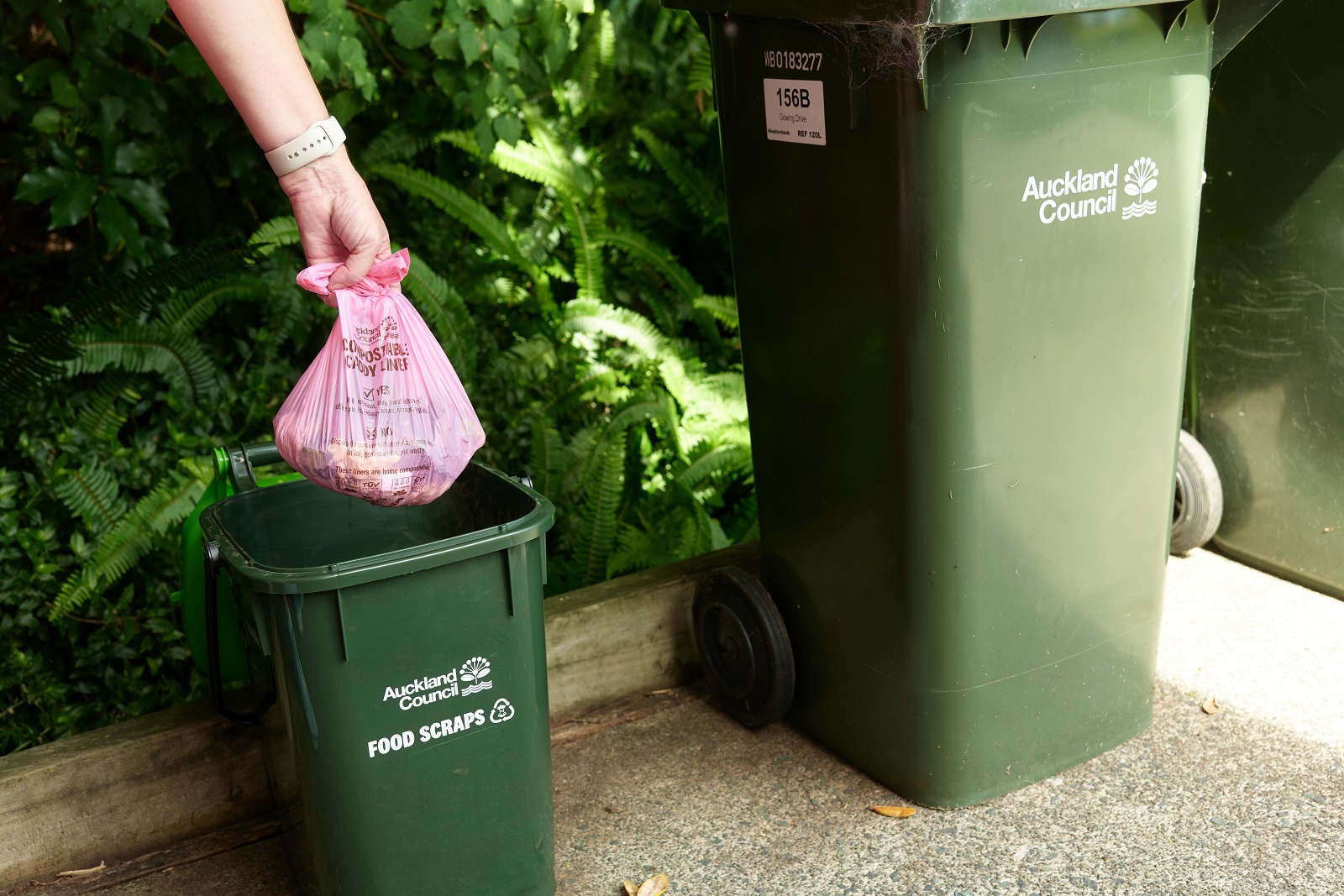
For Aucklanders, this makes acting on climate change easier. Not every household can compost food waste at home, and even if you have a composting system, not all food waste can go into it.
The new kerbside collection service complements home composting, Elise says. “It can take things that you might not want in your home compost bin, like meat, bones, shellfish and dairy scraps. Or, if you use a worm farm, the things your worms don’t eat like onion skins and citrus peel.”
The food scraps bins go out weekly, on your council collection day. The small bins are emptied into the waste collection vehicles – some of which are electric – and the food scraps are transported to a facility in Papakura before being combined into trucks bound for Reporoa.
Dr Alzbeta Bouskova Houghton, the general manager of Ecogas, says that even this transport has been carefully thought out. The food scraps are loaded into vehicles which have delivered gravel to Auckland from Taupō, she explains. Rather than returning to Taupō empty, now they make the trip back south carrying food scraps. “This means we aren’t adding more trucks to the roads to make the journey.”
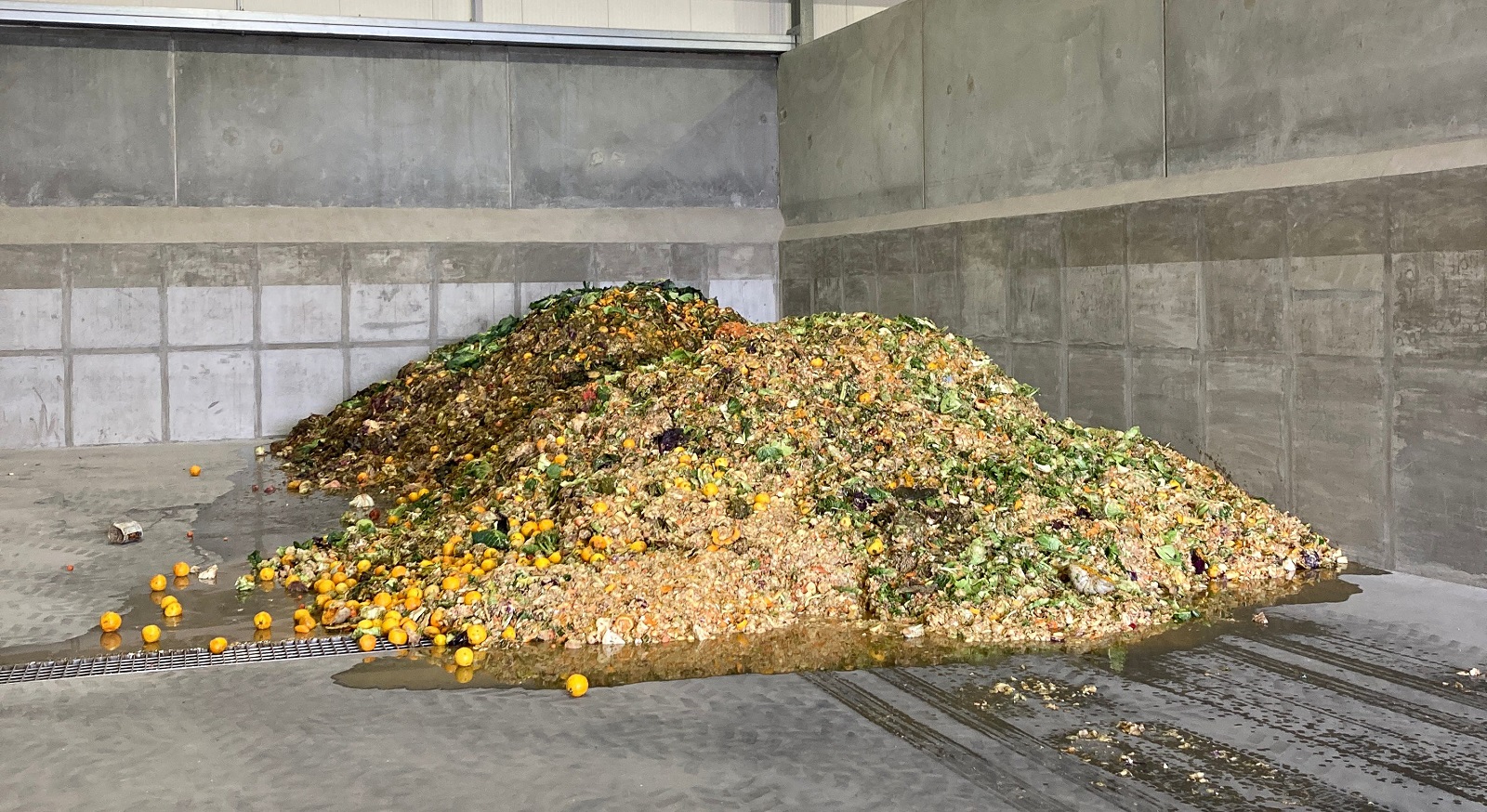
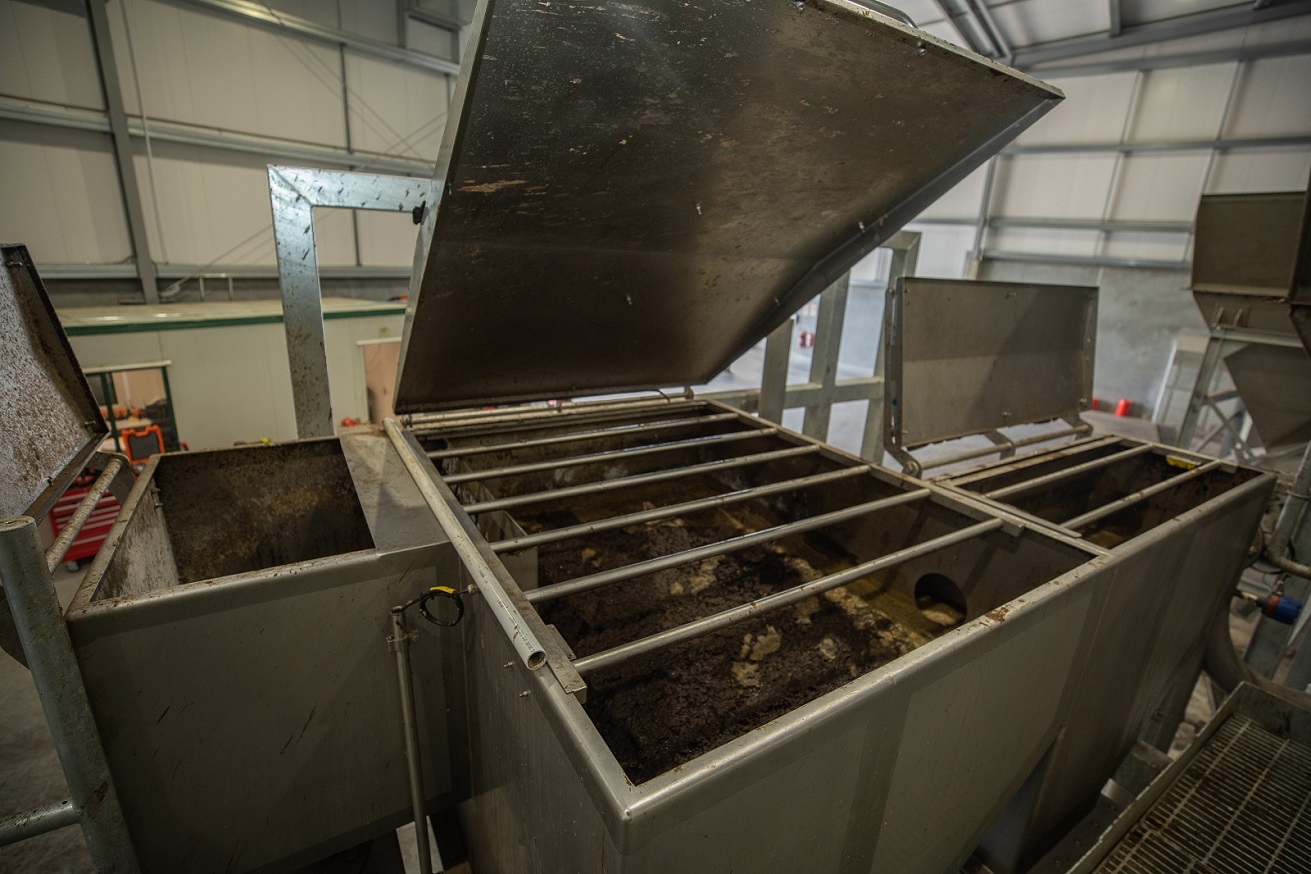
Once delivered to the Reporoa plant, the food scraps are fed into a machine which separates any packaging or cutlery from the food waste. “The food scraps are blended up into a thick chunky soup,” says Alzbeta. This “soup” is then fed into large tanks, called digesters, where the food waste sits for around 70 days, allowing bacteria to break down the soup into valuable biogas and liquid fertiliser.
The whole operation has been meticulously planned to make the most of resources and location.
The Ecogas plant is ideally located for making the most of the biogas and liquid fertiliser it produces. The gas heats nearby T&G’s tomato greenhouses. This means your food scraps, which would otherwise end up being wasted and producing greenhouse gases in landfill, are being used to grow more food. As Elise notes, you might even end up buying tomatoes grown from the energy produced from food scraps.
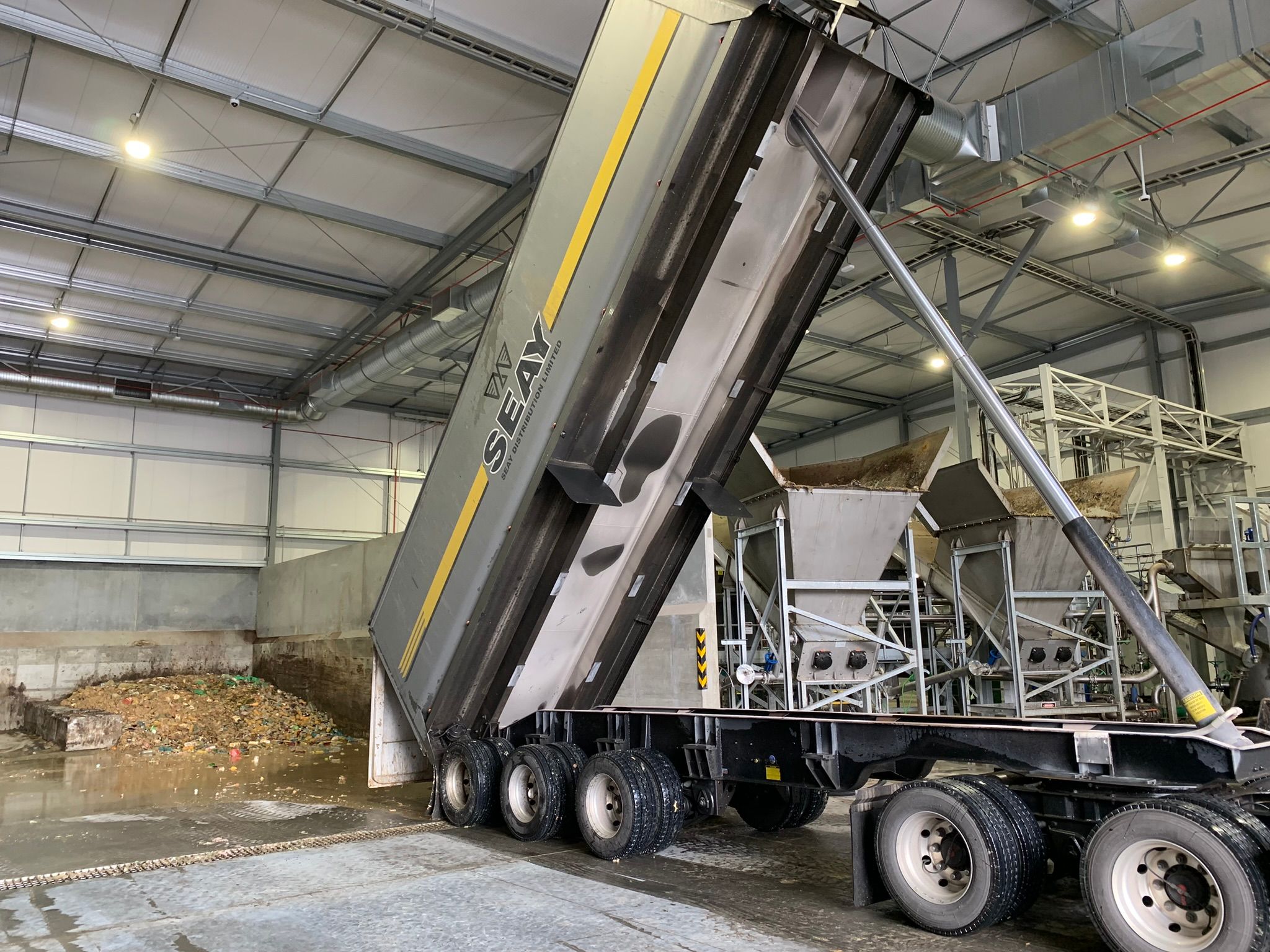
Meanwhile, the liquid fertiliser is applied to nearby farms and crops in the area as a regenerative alternative to imported fertiliser. The national gas grid also passes close by the plant. Next year, Ecogas plans to inject biogas directly into the national grid.
“This is one of the most integrated biogas plants I’ve seen,” says Alzbeta. “We are breaking new grounds on many of these [processes]. It’s a huge step towards a more circular economy for New Zealand.”
What’s more, the plant’s central location means it can absorb food scraps from other cities. The plan is to scale up to processing 75,000 tonnes annually as part of wider Government actions to address the 350,000 tonnes of food waste going to landfills nationwide each year.
The idea to use anaerobic digestion at scale has been in the works for around seven years, so the rollout of the food scraps collection service is a landmark for Auckland’s action on climate. Alzbeta couldn’t be more excited to see Aucklanders get onboard with food scraps collection.
“Our whole premise has been based on the idea of closing the food and energy loops for a sustainable future, and we are inching towards that goal one truck load at a time.”
